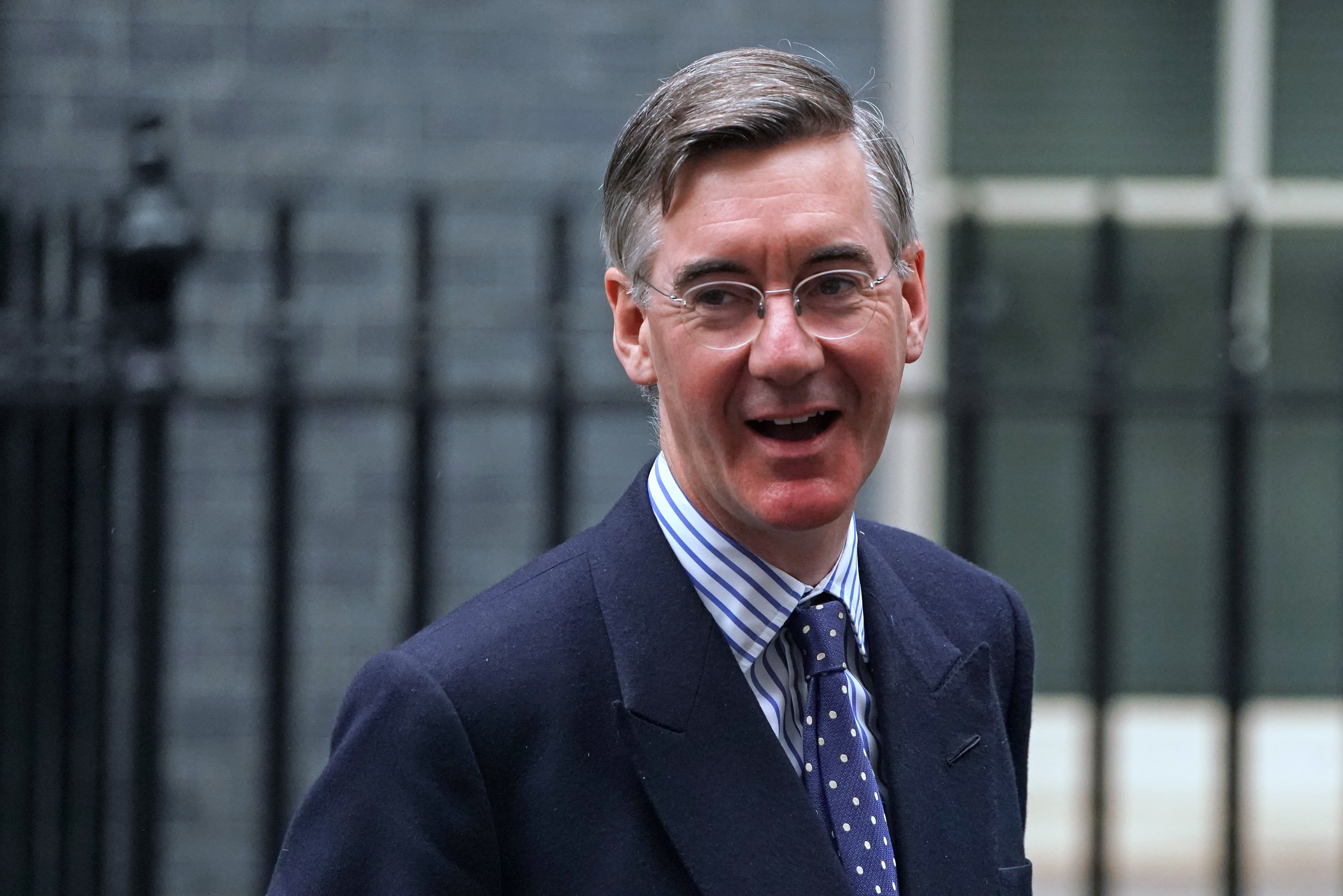Jacob Rees-Mogg is a throwback that is here to stay – and Boris Johnson had better get used to it
The leader of the House of Commons fits exactly into the pantheon of past colourful parliamentary eccentrics with reactionary views, writes Sean O’Grady


In normal times, the absurd Jacob Rees-Mogg would have been regarded as, at best, a political curiosity, a self-consciously self-manufactured, affected toff who goes around with a plummy accent and double-breasted suit merely to goad members of the Labour Party.
Indeed, while David Cameron and Theresa May were running things that is precisely how Rees-Mogg was regarded by some. Not even the most junior of ministerial roles would be awarded to the young fogey. Now, in the post-Brexit world, it would seem, he is a power in the land, clashing with the prime minister and, most recently, the chancellor of the exchequer. The government looks, and is, deeply divided, and “JRM” is becoming the leader of the internal opposition within government.
With an almost admirable impertinence he reportedly argued with the UK chief scientific adviser about Covid, and derailed Boris Johnson’s attempt to extend plan B before Christmas. Johnson was reduced to asking how Rees-Mogg would answer questions about it at a Downing Street press conference. Rees-Mogg gamely replied that he’d ask the British people to be responsible. Perhaps he mistook Johnson’s challenge for an invitation to chair the next live media presentation.
Emboldened by the prime minister’s visibly draining authority, on Wednesday, it’s reported, Rees-Mogg had the audacity to challenge Rishi Sunak (and Johnson) about the scheduled rise in national insurance in the spring. He wants the increase scrapped, because of the cost-of-living crisis. His policy is similar to Labour’s, but he doesn’t mind about that.
It is mark of how weak Johnson has become that he is being pushed around by Rees-Mogg. It is a measure of how fractious the cabinet is that Sunak can be told to abandon a central plank of his fiscal policy by this elegant anachronism. The post Rees-Mogg occupies, leader of the House of Commons, is an ancient and honourable one, but in brutal political terms one of the positions a premier will give to someone they want to marginalise or humiliate, or both. It has been used by prime ministers to park troublesome critics. The very notion of a minister given his job (and the right to attend cabinet) for a laugh chucking his weight around with the PM and chancellor should be ludicrous.
It is not, of course, because JRM is a veteran fundamentalist Brexiteer, a former chair of the European Research Group, a Eurosceptic long before the careerist Johnson clambered onto the bandwagon. JRM has a fan club among the “Spartans” and the wider, substantial, body of Tory MPs fed up with Johnson behaving (in their eyes) like a horrific cross between Jeremy Corbyn and Greta Thunberg.
They see JRM, even more than the likes of Liz Truss, as their champion in cabinet; and they are right to do so. Rees-Mogg is part-high priest, part-shop steward, part-kingmaker for a large faction of the parliamentary Conservative Party, and it is no joke for Johnson.
It is strange. A child of the Sixties (the 1660s), Rees-Mogg fits exactly into the pantheon of past colourful parliamentary eccentrics with reactionary views, now largely forgotten figures such as Nicholas Fairbairn, Sir Gerald Nabarro or, in our own time, Michael Fabricant. Norman St John-Stevas, a now half-forgotten figure, was a similar personality, a parliamentary boulevardier and “wet” Tory who was retained by Margaret Thatcher on sufferance, until one too many of his private jokes about “The Leaderene” made its way back to her ears, and he found himself relieved of his light duties as leader of the House of Commons.
The difference now is that Rees-Mogg is unsackable, even after his disastrous scheme to save Owen Paterson did so much damage to the party. If and when Johnson is replaced, Rees-Mogg will survive and probably prosper. The throwback is here to stay and, for the time being, debates in the British cabinet are increasingly a battle of wills, if not ideas, between two posh blokes who went to the same school. Floreat Etona!



Join our commenting forum
Join thought-provoking conversations, follow other Independent readers and see their replies
Comments